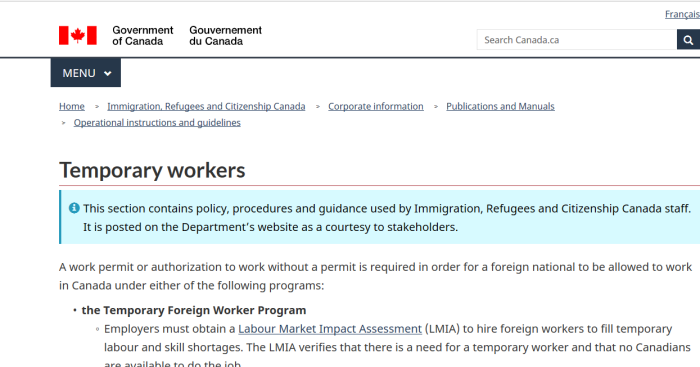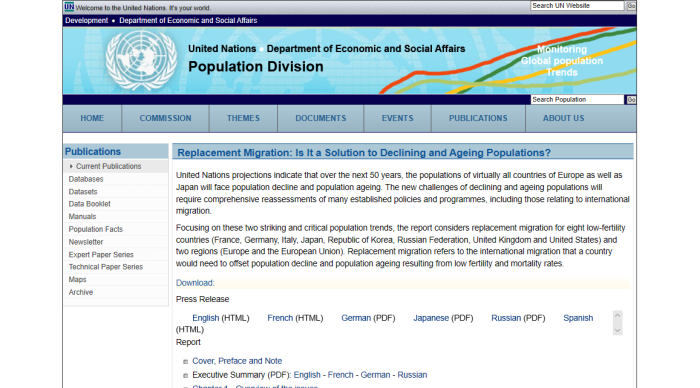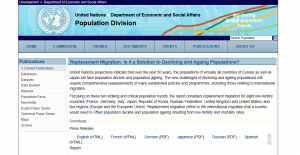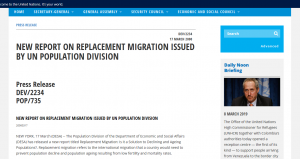(Bernier mocking Kellie Lietch on immigration. Less than 2 years later, he will pretend to start caring about it)
(Maxime Bernier defends “dysfunctional” UN, won’t leave)
https://www.youtube.com/watch?time_continue=224&v=lztDWPNfsjo
(March 8 Rebel Media video on Brooks, AB)
(Rebel Media on Islamic Relief Funding Terrorism)
(Islamic Party Wanting To Impose Sharia In Belgium)



1. Important Links
CLICK HERE, for the PPC Platform
CLICK HERE, for the Temporary Foreign Worker Program.
CLICK HERE, for TFWP data, 1990 to 2009.
CLICK HERE, for more TWFP data.
CLICK HERE, for 2018 Angus Reid poll on immigration.
CLICK HERE, for UN Secretary General’s High-level Panel on Global Sustainability (co-authored by Jordan Peterson).
CLICK HERE, for Abacus Poll, Bernier at 13%.
CLICK HERE, for Globe & Mail, Bernier at 17%.
CLICK HERE, for articles written on the binding nature of UN resolutions.
CLICK HERE, for wasted foreign aid in Afghanistan.
CLICK HERE, for Quebec opposing pipelines.
After much though, I cannot support the People’s Party of Canada anymore. As a Canadian nationalist with social conservative views, the PPC is not substantially different than the Conservative party of Canada.
There are many reasons, which will be addressed below.
There are far more important issues than the dairy cartel.
2. No Structure To This “Party”
(a) No leadership race — Bernier is self appointed
(b) No policy votes — agenda is handed down
(c) No party constitution
(d) No membership regulation
(e) No by-laws
(f) No governing documents of any kind
(g) No governing council or board
Seriously, if you are running to govern Canada, what kind of a shit-show is this? Beyond the fact that this “party” really exists only on paper, let’s see what else it wrong with it
3. Purging EDAs In BC
Well, it wouldn’t be a “People’s Party” without a massive purge at some point (pun intended).
While the party was originally touted as a right wing alternative, it seems that less and less viewpoints are now tolerated.
Nationalists, and others who reject the mass migration and rapid replacement of Canadians are dismissed as racists and bigots. Apparently, the non-PC party decided that it had to reject people to appear more tolerant.
Although the party calls itself “conservative”, attempts to bring socially conservative issues into the platform have failed, and their supporters not well received.
There have also been entire EDAs that were set up, but then members were removed ad-hoc, with no reason given. Guess they didn’t quite fit the mold. In fact, over half of the EDAs (Electoral District Associations) in BC had their people — their locally chosen people — removed and replaced by others.
Admittedly, it was an exciting project to get behind. But looking back, I knew nothing of who were the people running the show, or how it operated. 6 months later that is still the case.
4. Ideas And Platform
(I) PPC Won’t Leave the UN
As Canada’s former Foreign Affairs Minister, I witnessed first-hand how the international relations establishment has a set of priorities that are very different from those of ordinary Canadians.
They care about attending global conferences in trendy cities and getting photographed in the company of important foreign leaders. They worry about prestige and glamour, about Canada’s presence on the international scene even if that simply means having a tiny influence on events in parts of the world where we have almost no interest.
Whether it’s a bunch of bureaucrats discussing how to spend billions of dollars to kick-starting Canada’s economy; or a bunch of bureaucrats discussing how to spend billions of dollars on international organizations and development aid in other countries; it’s all the same. They are mostly furthering their own interests and wasting a lot of taxpayers’ money.
We are not going to try and please the foreign affairs establishment and the United Nations, a dysfunctional organisation which for years has disproportionately focused its activities on condemning Israel as if it were the source of most conflicts in the world. Last year for example, the UN General Assembly adopted 20 resolutions targeting Israel, while passing one each about the human rights situation in North Korea, Syria, and Iran.
Bernier’s now famous line: “The UN is a useless joke”. Is in the platform, and in many of his public comments and appearances, he criticizes the UN as wasteful. Sounds great, but one thing: why not leave the UN altogether? If Bernier truly views it money pit, against Canadians’ interests, and serves little value, why not leave? That detail is interestingly omitted.
While Bernier claims to cut spending on the UN (although not leave). Yet UN agreements result in pressure being applied to nations even for “non-binding” resolutions. Worse still, “non-binding” resolutions can still be used as a legal reference in future court challenges.
Further, if a Provincial or State level virtue signaller wants, a “non-binding” UN resolution can be legislated at that level (such as the case with BC wanting to pass the UN DRIP).
If a nation wanted to support humanitarian causes: great, but why would they need to be officially in the UN at all? Couldn’t personnel and/or supplies be sent directly to a cause? Seems unlikely that it would be refused simply because the donor was not a member. If anything, not being in the UN would prevent (or at least make it harder), for our interests to be run over.
(II) PPC Will “Only Review” Foreign Aid
Third, my government will review the $5 billion that Canada spends every year on international assistance programs.
Our refocused international assistance will centre on core humanitarian efforts to fight global health crises and respond to emergencies such as major conflicts and natural disasters. Canada has to show solidarity and do its part to help when populations are dying and suffering in countries that don’t have the means to save them.
However, every year, we spend billions of dollars funding job training, farming technology, infrastructure building and various other programs to help develop other countries’ economies. We will phase out this development aid, for which there is no moral or economic efficiency argument.
Serious question, given the waste and mismanagement in international agencies, how will PPC ensure that money given for “humanitarian purposes” is actually used as such? Also worth noting, how much of that $5 billion is development aid? And will this be cut completely, or redirected into “humanitarian aid?
Also, if the only money being spent is on emergency actions, why would it be necessary to be part of the UN at all?
In fairness to Bernier, it is nice to have the topic addressed. However, it would be naïve to assume that Canada will actually save anywhere near $5 billion annually.
Finally, given the widespread corruption and mismanagement in the UN and other global organizations, how can we be sure that aid is reaching the people it’s supposed to? How can we be sure that some or even all of it simply does not disappear? How can we be sure foreign aid is not used to finance nefarious causes? See above video. This is not to say all organizations are bad, but that there has to be real accountability as to how and where it goes.
(III) PPC Will “Only Review” Equalization Formula
Rather than continuing the welfare trap that our system of equalization has become, Bernier proposes to create an environment that encourages provinces to succeed and thrive, rather than relying on aid from other parts of the country.
Bernier’s plan has two key components:
-Immediately freeze the envelope of taxpayer dollars dedicated to equalization to stop the ever-increasing spending.
-Form a Parliamentary Committee dedicated to reviewing the equalization formula, proposing common sense solutions that will give provinces the right incentives to grow their economies.
In fairness, it is nice to see this issue addressed. It hasn’t at the Federal level in any meaningful way since its inception. However, it is inter-provincial welfare, plain and simple. Perhaps the real reason there’s no proposal to scrap it entirely is it would be political suicide in Quebec and the Maritimes, which depend on these handouts.
If a province still gets payments after 60 years, it should be obvious they have no intention of stopping. Phasing out completely would be a better option.
(IV) PPC Supports Mass Migration
Of course, Canadian society is also transformed by immigration, as it has for centuries. But this has to be done organically and gradually. When it happens too fast, it creates social tensions and conflicts, and provokes a political backlash, as we can see today in several countries.
This is why I am opposed to increasing the annual intake of immigrants from 250,000 to 300,000, as the Liberal government has announced.
This is laughable. At 250,000/year, it is stable. At 300,000 (or 310,000) it is mass migration.
Also worth mentioning is the petition Bernier sponsored, E-1906, cited here, to oppose the UN Global Migration Compact. In the height of the furor, thousands of Canadians protested against it. However, the PPC condemns “white nationalists” who are against mass migration, open borders, the UN in general, and in favour of protecting Canadian sovereignty and identity.
It would take some mental gymnastics for the PPC to call Stephen Harper out as a globalist, but then cite “his” number of 250,000/year. Also, how would they explain why a 20% reduction in immigration is “good and stable”, but that a 50-75% cut would be xenophobic and anti-immigrant.
Of course, this isn’t anywhere near a 20% reduction. Bernier omits the TFWP, which allows well over 100,000 people into Canada every year, many of whom becomes permanent residents. For example, in 2011, 192,000 TFW were admitted into Canada, and 29,000 TFW obtained permanent resident status. (See source). Also left out is the large number of student visas issued to college and university students annually. And of course, graduation is a quick path to permanent residence.
Of course this doesn’t include illegals getting a pathway to citizenship, nor refugees, nor anchor babies (birth tourism).
A far more accurate estimate would be that PPC wants an immigration reduction of about 10%.
Bernier frequently cites the Angus Reid poll (shown here), saying 49% of Canadians want less immigration. It would be nice if Angus Reid had followed up and asked how deep the cuts should be. 10% isn’t a major reduction, it’s just a tweaking.
Canada already has people from all corners of the globe. And most would love to have families, or at least bigger ones. See this initiative, recently announced by Hungary.
(V) Import Labour While Canadians Unemployed
Preventing our businesses from hiring the immigrant manpower they need with red tape is a big government policy. At the other extreme, mass immigration that would create social tensions and is not in the interest of Canadians is also a big government policy. A government under my leadership would find an appropriate middle ground so as to unleash Canada’s economic potential.
In particular, it should answer the needs of sectors where there is a scarcity of manpower with specialized skills; and in more general terms contribute to increasing the number of younger workers in a society that is fast aging.
Too little immigration means we will not get as much of these economic benefits as we could. But too much immigration also has its dangers.
See the above video from Rebel Media on Jason Kenney flooding Brooks, AB with Somali Muslims in order to obtain cheap labour. While an extreme case, there is nothing in the PPC website that states ensuring cultural compatibility with immigrants is necessary. It’s all about money.
And an obvious piece of information: businesses will ALWAYS say they need workers. From a supply side, there’s no downside, as it allows a greater choice for them.
With the high unemployment in Canada, particularly in Alberta, is there need for economic immigration or at least much smaller amounts? As with H1B visa in the US, it has the effect of driving down wages and forcing locals to face even stiffer competition.
The Temporary Foreign Workers Program (TFW) allows companies to import cheaper labour which gets subsidized by taxpayers. And again, this is done while Canadians are unemployed. This is even more true with young graduates who often struggle to find work in glutted professions.
When people can’t find work, it hurts them and hurts their families. There are larger impacts to consider than simply job growth or GDP. And in the larger picture, instead of relying on migration to grow a country, why not focus more on getting Canadian children to have more children? The overwhelming majority of Canadian families would want more.
(VI) Civic Nationalism is Glorified Multiculturalism
Though not explicitly in the PPC platform, many PPC members have stated that the PPC is a “civic nationalist party”. So what’s the problem?
CIVIC NATIONALISM REJECTS ANY NATIONAL IDENTITY
The main features of civic nationalism is that people are joined by “values” as opposed to identity. Free speech, a constitution, equality under the law are all common tenants of the ideology. While those “are” important to have, they are not enough to unify a society.
Civ-Nat rejects common bonds such as: culture, spoken or written language, faith or religion, heritage, traditions, customs and yes (ancestry or ethnicity). These identity unifiers are stronger within groups than the “values”. It is not bigoted to want there to be something in common with all the people. A common culture and language are the bare minimum. Without it, people break off into groups who share similar traits.
Worse is the 1988 Multiculturalism Act (passed by “Conservative” Brian Mulroney). This Act actually encourages people to keep their old cultures, traditions and languages. In fact, it discourages assimilation.
And how do people maintain their culture? They band together, form a group — or balkanize — and keep practicing it.
Another bit of mental gymnastics for the PPC: “Why” do you object to Trudeau’s comments about Canada being a post-national country if you “don’t” support having a distinct and dominant identity?
It is not “extreme multi-culturalism” to have balkanization and ghettos. It is in fact the point of multiculturalism. And this leads to the next point….
(VII) Quebec Hypocrisy in Protecting Identity
Quebec has laws to protect its language and culture.
There is nothing wrong with that. However, multiculturalism and bilingualism are forced down the throats of the rest of Canada. The bulk of Canada was built as a British colony, with and English tradition.
Distinct identity for Quebec.
Melting pot for everyone else.
Every nation should have its own identity. But to allow a region to province to have one, but not elsewhere is hypocrisy.
(VIII) Bernier Compares Himself to Macron
In an interview, Bernier compared himself to Emmanuel Macron, who became President of France less than a year after launching his party in France.
While that sounds harmless enough, consider this: Macron is a Rothschild banker. While running as a “populist”, he proved to be anything but. He is now an EU globalist calling for the further break down of European nations. See this earlier review.
Interesting role model.
(IX) PPC’s new hero: Jordan Peterson
While it is normally wrong to judge someone by the company they keep, this article covers why getting involved with Peterson would be a serious mistake for any serious “populist” party.
(X) Complete Dismissal of Social Conservatives
PPC has made it clear from the beginning that they will not have any sort of social conservative policies being advanced by the party. They seem to believe that killing unborn children using tax dollars, sex changes for children, and the like are not issues the Feds need to be concerned with.
Indeed much of it is pushed off as “Provincial Issues”. Who cares if the culture declines as long as you are tolerant?
For a party that claims to offer a voice to Canadians who otherwise would feel excluded, this is a little rich.
Interesting that in recent by-elections, Laura-Lynn Tyler Thompson did by far the best at 11%. She is a social conservative whose values would never actually be promoted by the PPC (except “possibly” as a private member’s bill).
Do we value lives of unborn children?
Are children best off with a mother and father?
Do we want young children corrupted by SOGI?
In September 2018, Bernier, even without a party had 13-17% support.
Now PPC has 2% nationally. (more than 80% drop)
Also consider the drop in support for 2 petitions Bernier sponsored:
PETITION E-1906 (UN Global Migration Compact): CLICK HERE
PETITION E-2012 (UN Global Parliament) CLICK HERE
(I) 68,500 for the anti-global migration compact petition.
(II) 4,100 for the anti-UN Parliament. (90% drop)
(XI) Political Islam
First, my government will continue to work closely with our allies to ensure peace and security, especially against radical Islamic terrorism. We will only get involved in foreign conflicts when we have a clear strategic interest in doing so and when the security of Canadians is directly impacted.
What could possibly be wrong with this statement? Nothing, except it omits the elephant in the room: POLITICAL ISLAM.
Lebanon was a Christian country.
Turkey was a Christian country.
Afghanistan was a Buddhist country.
Iran (Persia) was a secular country.
Pakistan was part of India and a Sikh country.
And so on….
Islam has entered dozens of countries across the globe and infiltrated their politics. The OIC (Organization of Islamic Countries) makes up 57 of the 193 countries in the UN, and is in fact the largest voting bloc. Yet another reason to leave the UN.
Islamic operatives are in the Canadian Government, and they have made serious inroads in American and European politics. The goal is the same: world domination and to spread Islam across the globe.
Condemning terrorism is an easy thing to do. When people are slaughtered for their beliefs, and their religious institutions vandalized or burned, it is a straightforward matter. But the PPC doesn’t call out the political branches of Islam trying to weaponize corrupt democratic governments.
Recently, the newly formed Islamic Party of Ontario made headlines. The founder, Jawed Anwer, stated that liberalism is killing off Islam. To be fair, Bernier did take a shot at this “ideological diversity making us stronger”.
Although terrorism and direct violence are more overt and obvious, the creeping Sharia into Western countries is the bigger threat growing.
(XII) Hypocrisy in “Call-Out Culture”
Probably Bernier’s strongest asset is his ability (and willingness) to call out pandering and political correctness. However, he seems uninterested in addressing criticism of the above topics.
(XIII) Free Trade With China
This is addressed in another article. But given how China does not play by the same rules, why would we undercut the job prospects of our own citizens? In fact, the “free trade” agenda as a whole seems to be just an excuse to outsource jobs, industries, and manufacturing to the 3rd world. There, people will do the same jobs, but for less.
(XIV) Support Private Bank Loans/Repeal of 1934 Bank of Canada Act
This topic was covered in a few other topics, but worth repeating. It is not the debt itself, but rather “who” the money is borrowed from. When we borrow from private banks, “foreign bodies” actually own the national debt.
(a) The 1934 Bank of Canada Act
(b) COMER case, to challenge private bank loans
(c) US Federal Reserve
Bernier goes on and on about the DAIRY cartel, but never once mentions the BANKING cartel. Strange, isn’t it?
5. Final Thoughts
While there are a few nice points, it misses bigger issues. As such, I can no longer be a part of this. Far from a full solution, in many ways it is a half measure.
PPC offers nothing to Nationalists concerned with mass migration.
PPC offers nothing to social conservatives.
PPC is not substantially different than CPC on issues of Canadian sovereignty and independence.
PPC supports globalized trade, which decimates industries.
PPC won’t discuss the real cause of the debt, the banking cartel.
The CPC isn’t a solution either — for anyone who might make the “shill” accusation. They have signed plenty of bad deals such as Agenda 2030 (Harper) and Agenda 21 (Mulroney), and support for Paris Accord (Scheer).
Time to keep looking.



